Find Help
More Items From Ergsy search
-
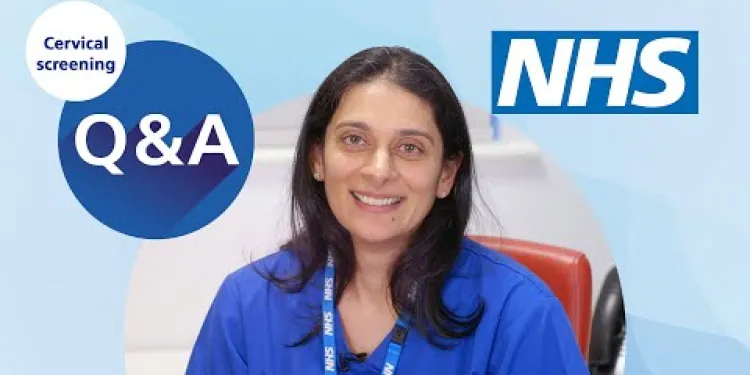
Cervical screening: Q&A | NHS
Relevance: 100%
-
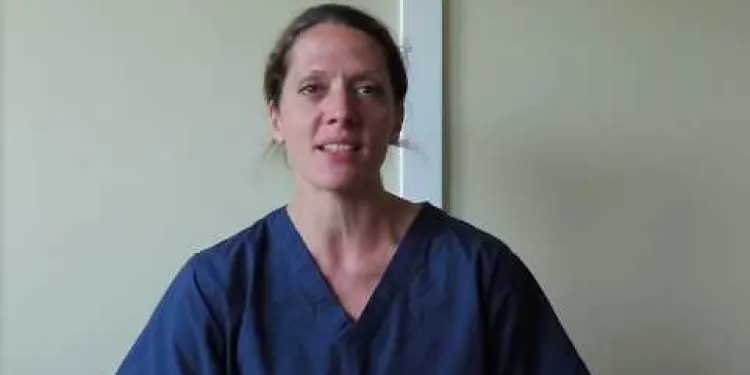
The NHS is #StillHereToHelp with cervical screening
Relevance: 96%
-
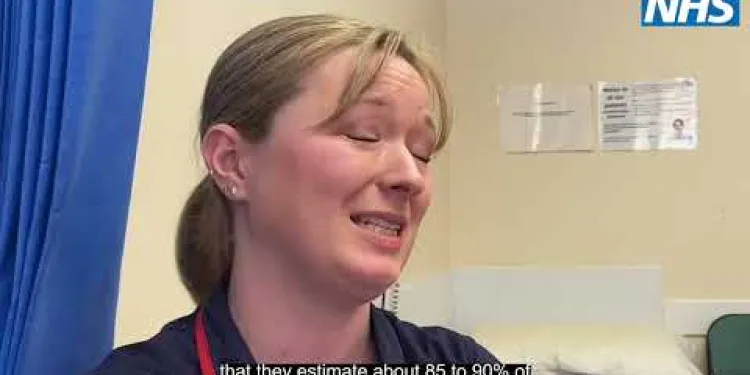
What is cervical screening (smear test)?
Relevance: 93%
-

Cervical screening: what to expect | NHS
Relevance: 92%
-
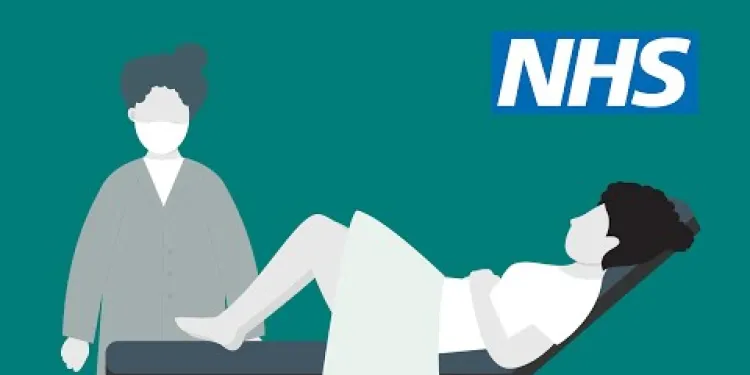
Cervical screening: how it's done | NHS
Relevance: 92%
-
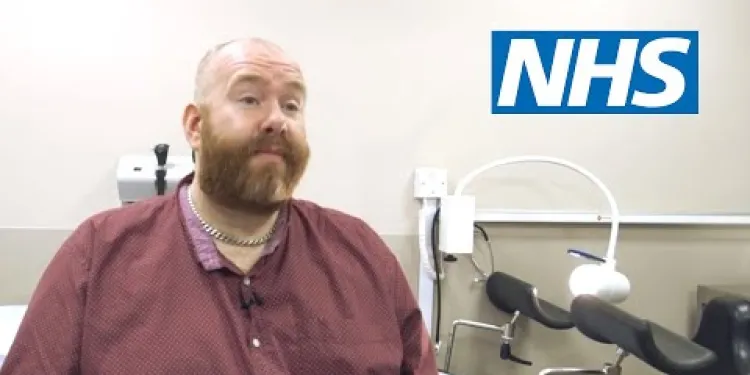
Cervical screening for transgender men | NHS
Relevance: 92%
-

Cervical screening: what to expect | NHS
Relevance: 91%
-
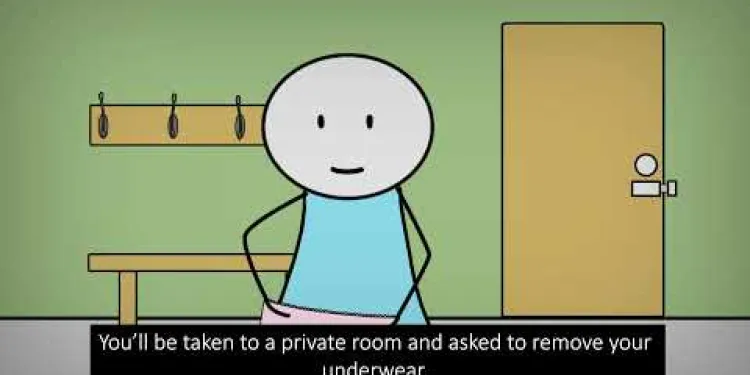
NHSGGC - Cervical Cancer Screening - English
Relevance: 91%
-

When should cervical cancer screening begin?
Relevance: 89%
-
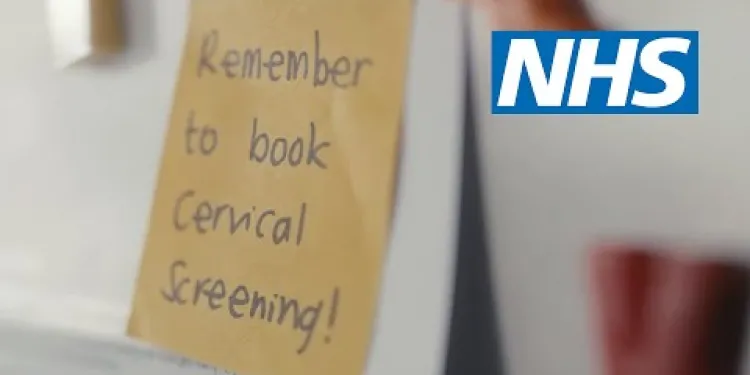
Don’t ignore your cervical screening invite | NHS
Relevance: 86%
-

Cervical screening (smear test) – what’s it all about?
Relevance: 86%
-

Accessing cervical screening with the right support for people with a learning disability
Relevance: 82%
-

Cervical screening for women who have experienced sexual assault | NHS
Relevance: 81%
-
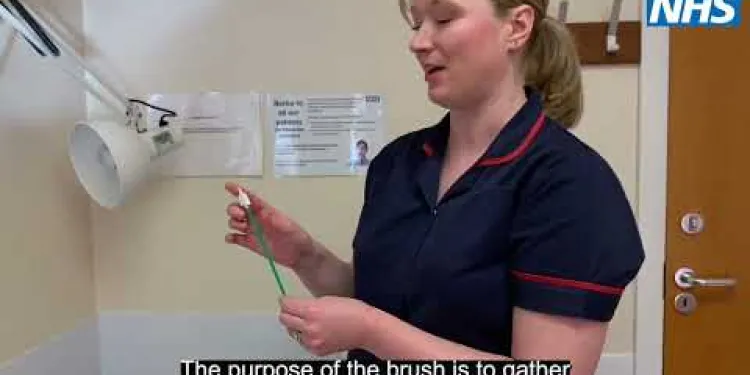
Booked in for your smear test (cervical screening) and not sure what to expect?
Relevance: 78%
-

What is the link between HPV and cervical cancer?
Relevance: 70%
-
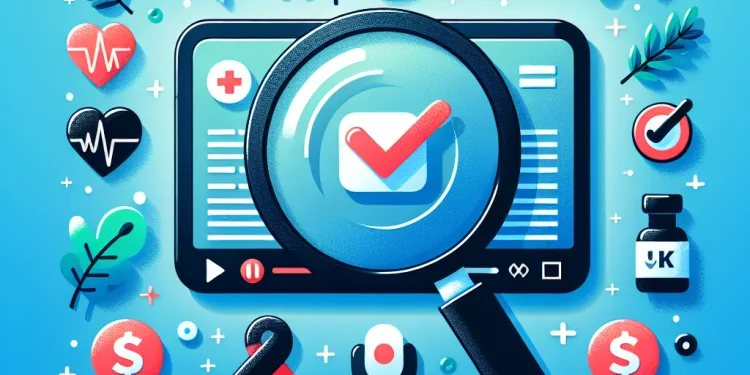
Health Screenings You Should Know About
Relevance: 59%
-

What kinds of cancer screening are available?
Relevance: 58%
-

What is cancer screening?
Relevance: 56%
-
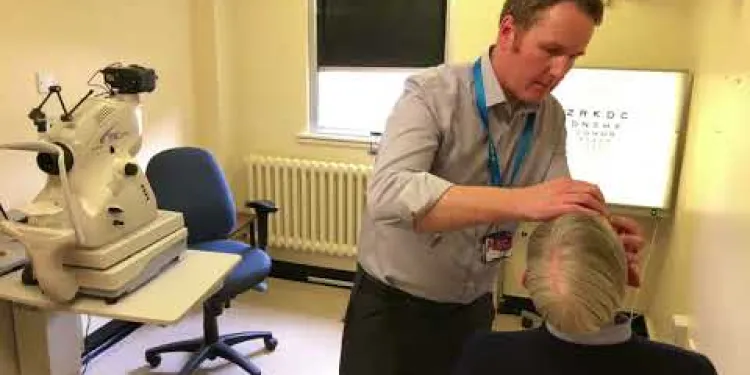
Derbyshire Diabetic Eye Screening - Diabetic Eye Screening
Relevance: 40%
-
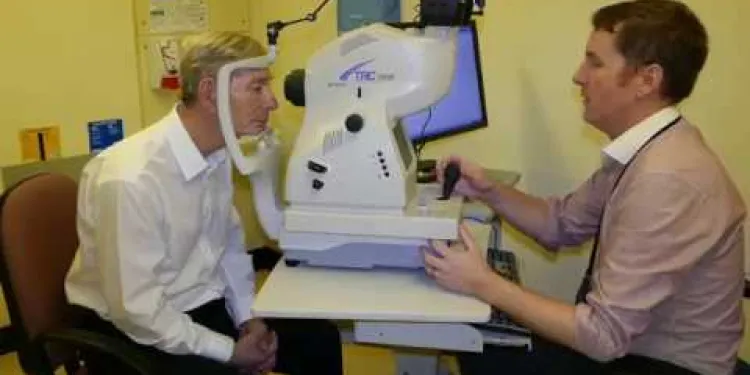
Derbyshire Diabetic Eye Screening - Your Screening Appointment
Relevance: 40%
-

Diabetes Eye Screening
Relevance: 39%
-

Is HPV testing available?
Relevance: 39%
-

AI Breast Cancer Screening in the UK
Relevance: 39%
-
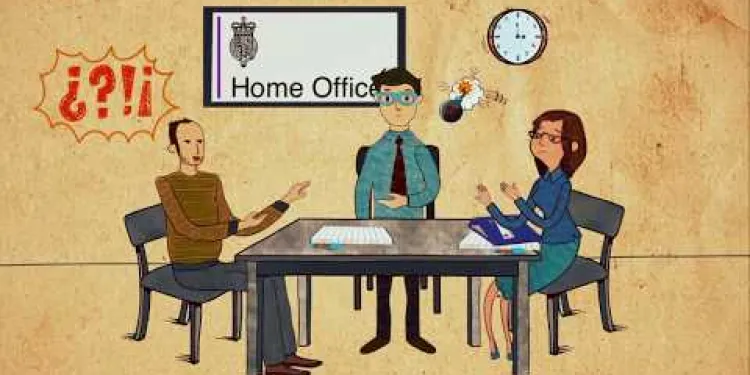
The asylum screening interview
Relevance: 39%
-

NHS breast cancer screening
Relevance: 38%
-

Are there eco-friendly mosquito screen options?
Relevance: 38%
-

Are mosquito window screens effective in the UK?
Relevance: 38%
-

Are Mosquito window screens effective?
Relevance: 38%
-

Are there retractable mosquito screens available?
Relevance: 38%
-

Is screening painful or risky for my child?
Relevance: 38%
-
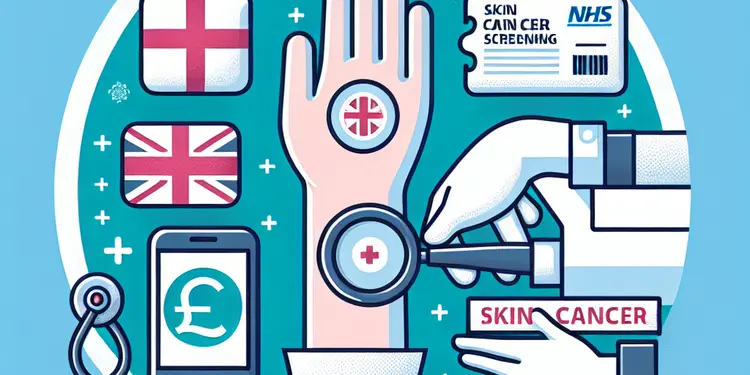
What is a skin cancer screening?
Relevance: 38%
-

How do I maintain my mosquito screens?
Relevance: 37%
-

Can pets damage mosquito screens?
Relevance: 36%
-

Do mosquito screens add value to my home?
Relevance: 36%
-

Is genetic screening available for cancer risk?
Relevance: 36%
-

Are mosquito screens effective against midges?
Relevance: 36%
-

AAA (Abdominal aortic aneurysm) screening
Relevance: 36%
-

What are the limitations of type 1 diabetes screening?
Relevance: 36%
-

Do mosquito screens provide insulation benefits?
Relevance: 36%
-

Can HPV lead to cancer?
Relevance: 36%
Don't Ignore Your Cervical Screening Invite | NHS
The Importance of Cervical Screening
Cervical screening, also known as a smear test, is a critical health check for women in the United Kingdom. The NHS sends out invitations to eligible women aged 25 to 64. Cervical screening can detect abnormal cells in the cervix early, which can prevent cervical cancer from developing. Missing this important health check could mean missing the opportunity to address potential issues before they become severe.
Who Should Get Screened?
Women aged 25 to 49 are invited for screening every three years, and women aged 50 to 64 are invited every five years. If you fall into these age groups and receive an invitation, it is crucial to book and attend your appointment. Even if you have had the HPV vaccination, regular screening is still necessary as the vaccine does not guarantee complete protection against cervical cancer.
What to Expect During the Screening
The cervical screening process is quick and usually takes about 5 minutes. A healthcare professional will gently take a small sample of cells from your cervix using a soft brush. This sample is then sent to a lab to test for high-risk types of human papillomavirus (HPV), which can lead to abnormal cell changes and cervical cancer. Some women may find the test uncomfortable, but it should not be painful. If you experience discomfort, inform the healthcare professional performing the test.
Breaking the Myths and Stigma
There are many myths and stigmas surrounding cervical screening. Some women feel embarrassed or scared. It's essential to understand that the procedure is designed to protect your health. Healthcare professionals are trained to make the process as comfortable as possible. Remember, a few minutes of discomfort can prevent serious health issues later on.
How to Book Your Appointment
Upon receiving your cervical screening invitation, contact your GP surgery to book an appointment at a time that is convenient for you. If you have concerns or need additional support, do not hesitate to ask your GP or nurse. Family planning clinics and sexual health clinics also offer cervical screening services.
Your Health is in Your Hands
Cervical screening is a simple yet effective way to safeguard your health. Ignoring the invite can have severe consequences. Take control of your wellbeing and ensure you attend your screening when invited. Early detection can save lives.
Don't Ignore Your Cervical Screening Invite
Why Cervical Screening is Important
Cervical screening is a health check for women. It is also called a smear test. In the UK, women aged 25 to 64 get an invite for this test. It looks for changes in the cervix that could lead to cancer. Going for this test can stop problems before they become serious.
Who Needs to Go for Screening?
Women aged 25 to 49 should go for screening every 3 years. Women aged 50 to 64 should go every 5 years. Even if you had the HPV vaccine, you still need the test. If you get an invite, make sure to book your appointment.
What Happens During the Test
The test is quick and takes about 5 minutes. A nurse or doctor will gently brush some cells from your cervix. These cells go to a lab to check for HPV. HPV can cause changes that might lead to cancer. Some people find the test uncomfortable, but it should not hurt. Tell the nurse if you feel pain.
Let's Talk About Myths and Fears
Some people feel scared or shy about the test. Remember, the test is to keep you healthy. Nurses and doctors do their best to make you feel at ease. A few minutes of feeling awkward can keep you safe from serious illness later.
Booking Your Test
When you get your invite, call your GP to book a time that suits you. If you have questions, ask your doctor or nurse. You can also go to family planning clinics or sexual health clinics for the test.
Taking Care of Your Health
Cervical screening is an easy way to look after your health. Not going to your test can be risky. Make sure you go when you get an invite. Finding problems early can save lives.
Frequently Asked Questions
What is a cervical screening?
A cervical screening (previously known as a smear test) is a medical test that helps prevent cervical cancer by checking for pre-cancerous cells and high-risk types of human papillomavirus (HPV).
Who should get a cervical screening?
Cervical screening is offered to women and people with a cervix aged 25 to 64 in the UK.
How often should I have a cervical screening?
Women and people with a cervix aged 25-49 are invited for screening every 3 years, and those aged 50-64 are invited every 5 years.
Is a cervical screening painful?
A cervical screening may be uncomfortable, but it should not be painful. If you experience pain, inform the nurse or doctor immediately.
How long does a cervical screening take?
The actual test usually takes around 5 minutes, although your entire appointment may take about 15 minutes.
What should I do to prepare for my cervical screening?
You don't need any special preparation. However, it's best to avoid scheduling the test during your period, as it can make it harder to get a clear sample.
What if I’m pregnant?
If you are pregnant, you usually will not need a cervical screening until 12 weeks after giving birth.
Can I have cervical screening if I’m disabled?
Yes, adjustments can be made to help accommodate your needs. It’s advisable to inform the clinic in advance.
What happens if my cervical screening results are abnormal?
If you have abnormal results, you may need further tests to determine if there are pre-cancerous cells. This doesn't usually mean you have cervical cancer.
How will I receive my cervical screening results?
You will receive your results by letter within 2 weeks of your appointment.
Can cervical cancer be detected early?
Yes, cervical screening helps detect changes in the cervix that can be treated before they turn into cancer, significantly reducing the risk.
What is HPV and how is it related to cervical screening?
HPV is a common virus that can cause cervical abnormalities. Cervical screening checks for high-risk types of HPV that may lead to cervical cancer.
Is the cervical screening test available for free on the NHS?
Yes, cervical screening is offered for free to eligible individuals on the NHS.
Can I refuse the cervical screening test?
Yes, you can choose not to have the test, but it’s important to understand the benefits of cervical screening for your health.
What should I do if I missed my cervical screening appointment?
If you missed your appointment, you should contact your GP practice to reschedule as soon as possible.
What is a cervical screening?
A cervical screening is a test for the health of a woman's cervix. The cervix is the lower part of the womb.
This test helps find any changes in the cells of the cervix that could lead to cancer. It is important to catch these changes early.
Women are usually invited for this test every few years. It does not mean you have cancer, it is a way to check for changes.
You can use a calendar to remember your screening dates. Ask a friend or family member to remind you, too.
Remember, it's always okay to ask your doctor or nurse if you have questions or if you feel worried.
A cervical screening test is a health check. It used to be called a smear test. This test helps stop cervical cancer before it starts. It checks for special cells that might turn into cancer. It also looks for a virus called HPV that can cause cancer.
Who Needs to Have a Cervical Test?
A cervical test checks your body's health. It helps to stop bad cells from growing. This test is important for women and people with a cervix.
Here is who should get a cervical test:
- People aged 25 to 64 should have the test.
- It is a good idea to get tested every few years. Ask your doctor when you need it.
If reading is hard, you can ask someone to help you read.
You can also use audio tools that read words to you.
Cervical screening is a health check-up for women and people with a cervix.
In the UK, this check-up is for people who are aged 25 to 64.
How often should I get a cervical screening test?
You should go for a cervical screening test every few years.
Here is when you need to do it:
- If you are 25 to 49 years old, go every 3 years.
- If you are 50 to 64 years old, go every 5 years.
Ask a doctor or nurse if you need more help.
Women and people with a cervix who are 25 to 49 years old are asked to go for a health check every 3 years. Those who are 50 to 64 years old are asked to go every 5 years.
Does a cervical screening hurt?
A cervical screening is a test to check your cervix. It can feel a little uncomfortable, but it should not be painful. You might feel a bit of pressure, but it is over quickly.
If you feel worried, you can talk to the nurse or doctor. Tell them how you feel. Taking deep breaths can help you relax.
You can bring someone with you for support, like a friend or family member. They can help you feel more relaxed.
A cervical screening might feel a bit uncomfortable. It should not hurt. If it does hurt, tell the nurse or doctor right away.
How long does a cervical screening take?
A cervical screening is a test to check the health of your cervix. The cervix is the lower part of the womb.
The test usually takes around 5 minutes. You will lie on a bed, and a nurse will do the test. It might feel a bit uncomfortable, but it should not hurt.
To help you feel more relaxed, you can:
- Take deep breaths.
- Listen to music on your phone.
- Bring someone with you for support.
The test itself only takes about 5 minutes, but you might be there for 15 minutes in total.
How can I get ready for my cervical screening?
Here are some tips to help you get ready:
- Wear comfy clothes: Choose clothes that are easy to take off and put on.
- Relax: Try to stay calm. You can practice deep breathing to help you relax.
- Pick a good time: Choose a day when you're not on your period.
- Ask for help: You can bring a friend or family member for support.
Don't worry! The nurse will talk to you and explain everything. You can ask questions if you don't understand.
You don't need to get ready in a special way. But try not to plan the test when you have your period. It's because this can make it hard to get a clear test sample.
Here are some tips to help:
- Use a calendar to track your period days.
- Ask someone to remind you about your test date.
- Use simple tools like alarms on your phone to help you remember things.
What if I’m going to have a baby?
Are you going to have a baby? Here is some help:
- Talk to a doctor. They can help you and your baby stay healthy.
- Eat healthy food and rest a lot. It is good for you and the baby.
- Ask for help from family or friends if you need it.
- You can use apps or books to learn more.
If you have questions, you can always ask someone you trust.
If you are going to have a baby, you usually do not need a cervical screening until 12 weeks after your baby is born.
Can I get a cervical screening if I'm disabled?
Yes, you can. If you have a disability, you can still have a cervical screening. This test checks your health.
If you need help, tell your doctor or nurse. They can make it easier for you.
Ask for things like:
- Extra time for the test
- A support person with you
- Tools to help, like cushions or special chairs
Remember, it is okay to ask questions. The doctor or nurse is there to help you feel comfortable.
Yes, changes can be made to help you. Tell the clinic before you go.
What if my cervical screening test shows something different?
If your test results are not normal, you might need more tests. This will help doctors see if there are any cells that could turn into cancer later. This usually does not mean that you have cervical cancer now.
How will I get my cervical screening results?
After your test, you will get your results in the mail. You should get them in about 2 weeks.
If you do not get your results in 3 weeks, you can call the doctor's office where you had the test. They can help.
You can use a calendar to mark the 2 weeks, so you know when to expect your results. You can also ask someone you trust to help you remember to call if you don’t get your results.
You will get your results in a letter 2 weeks after your appointment.
Can we find cervical cancer early?
Yes, doctors can find cervical cancer early. They use a test called a Pap test to check for cancer. It is important for women to have this test regularly. The test can help find changes in the cells before they turn into cancer. This means doctors can treat it early and stop cancer from growing.
Ask your doctor when you should have a Pap test. They can help you understand how often you need it.
Yes, cervical screening checks for changes in the cervix. These changes can be treated so they don’t turn into cancer. This makes the risk much lower.
What is HPV and how is it related to cervical screening?
HPV is a virus. It can cause changes in the body. Some changes can lead to cancer.
Cervical screening is a test. It checks for HPV. It helps to keep you healthy by finding changes early.
Tools like picture charts can help you understand. Ask someone you trust to help explain if needed.
HPV is a germ that lots of people have. It can sometimes cause changes in the neck of the womb. The neck of the womb is also called the cervix. These changes can be checked with a test. The test looks for bad types of HPV that might cause cancer in the cervix.
Can you get the cervical screening test for free on the NHS?
Yes, you can get a cervical screening for free with the NHS if you are the right age.
Can I say no to the cervical screening test?
Yes, you can say "no" to the cervical screening test. It is your choice.
If you are not sure what to do, you can talk to a doctor or nurse. They can help you understand why the test is important. You can ask them questions.
There are also tools that can help you decide:
- Simple Information Sheets: These are short papers with easy words. They explain what the test is for.
- Talking with Family or Friends: Sometimes, talking to someone you trust can help you decide.
- Videos: You can watch videos that explain the test in a simple way.
Remember, it is okay to say "no" if that is what you want.
Yes, you can say no to the test. But it’s good to know how the test can help keep you healthy.
What to Do if You Missed Your Cervical Screening Appointment
Did you forget to go to your cervical screening? Don't worry! Here are some easy steps to follow:
1. Call your doctor or clinic. Tell them you missed your appointment. They can help you set a new date.
2. Write down your new appointment in a calendar. This will help you remember.
3. Set a reminder alarm on your phone. This will alert you before your appointment.
4. Ask a friend or family member to remind you. They can help you remember the date.
It’s important to go to your cervical screening to stay healthy. You can always ask your doctor any questions you have. They are there to help you!
If you missed your appointment, call your doctor’s office to make a new one as soon as you can.
Useful Links
Have you found an error, or do you have a link or some information you would like to share? Please let us know using the form below.
-->
This website offers general information and is not a substitute for professional advice.
Always seek guidance from qualified professionals.
If you have any medical concerns or need urgent help, contact a healthcare professional or emergency services immediately.
Some of this content was generated with AI assistance. We’ve done our best to keep it accurate, helpful, and human-friendly.
- Ergsy carfully checks the information in the videos we provide here.
- Videos shown by Youtube after a video has completed, have NOT been reviewed by ERGSY.
- To view, click the arrow in centre of video.
- Most of the videos you find here will have subtitles and/or closed captions available.
- You may need to turn these on, and choose your preferred language.
- Go to the video you'd like to watch.
- If closed captions (CC) are available, settings will be visible on the bottom right of the video player.
- To turn on Captions, click settings .
- To turn off Captions, click settings again.
More Items From Ergsy search
-

Cervical screening: Q&A | NHS
Relevance: 100%
-

The NHS is #StillHereToHelp with cervical screening
Relevance: 96%
-

What is cervical screening (smear test)?
Relevance: 93%
-

Cervical screening: what to expect | NHS
Relevance: 92%
-

Cervical screening: how it's done | NHS
Relevance: 92%
-

Cervical screening for transgender men | NHS
Relevance: 92%
-

Cervical screening: what to expect | NHS
Relevance: 91%
-

NHSGGC - Cervical Cancer Screening - English
Relevance: 91%
-

When should cervical cancer screening begin?
Relevance: 89%
-

Don’t ignore your cervical screening invite | NHS
Relevance: 86%
-

Cervical screening (smear test) – what’s it all about?
Relevance: 86%
-

Accessing cervical screening with the right support for people with a learning disability
Relevance: 82%
-

Cervical screening for women who have experienced sexual assault | NHS
Relevance: 81%
-

Booked in for your smear test (cervical screening) and not sure what to expect?
Relevance: 78%
-

What is the link between HPV and cervical cancer?
Relevance: 70%
-

Health Screenings You Should Know About
Relevance: 59%
-

What kinds of cancer screening are available?
Relevance: 58%
-

What is cancer screening?
Relevance: 56%
-

Derbyshire Diabetic Eye Screening - Diabetic Eye Screening
Relevance: 40%
-

Derbyshire Diabetic Eye Screening - Your Screening Appointment
Relevance: 40%
-

Diabetes Eye Screening
Relevance: 39%
-

Is HPV testing available?
Relevance: 39%
-

AI Breast Cancer Screening in the UK
Relevance: 39%
-

The asylum screening interview
Relevance: 39%
-

NHS breast cancer screening
Relevance: 38%
-

Are there eco-friendly mosquito screen options?
Relevance: 38%
-

Are mosquito window screens effective in the UK?
Relevance: 38%
-

Are Mosquito window screens effective?
Relevance: 38%
-

Are there retractable mosquito screens available?
Relevance: 38%
-

Is screening painful or risky for my child?
Relevance: 38%
-

What is a skin cancer screening?
Relevance: 38%
-

How do I maintain my mosquito screens?
Relevance: 37%
-

Can pets damage mosquito screens?
Relevance: 36%
-

Do mosquito screens add value to my home?
Relevance: 36%
-

Is genetic screening available for cancer risk?
Relevance: 36%
-

Are mosquito screens effective against midges?
Relevance: 36%
-

AAA (Abdominal aortic aneurysm) screening
Relevance: 36%
-

What are the limitations of type 1 diabetes screening?
Relevance: 36%
-

Do mosquito screens provide insulation benefits?
Relevance: 36%
-

Can HPV lead to cancer?
Relevance: 36%


